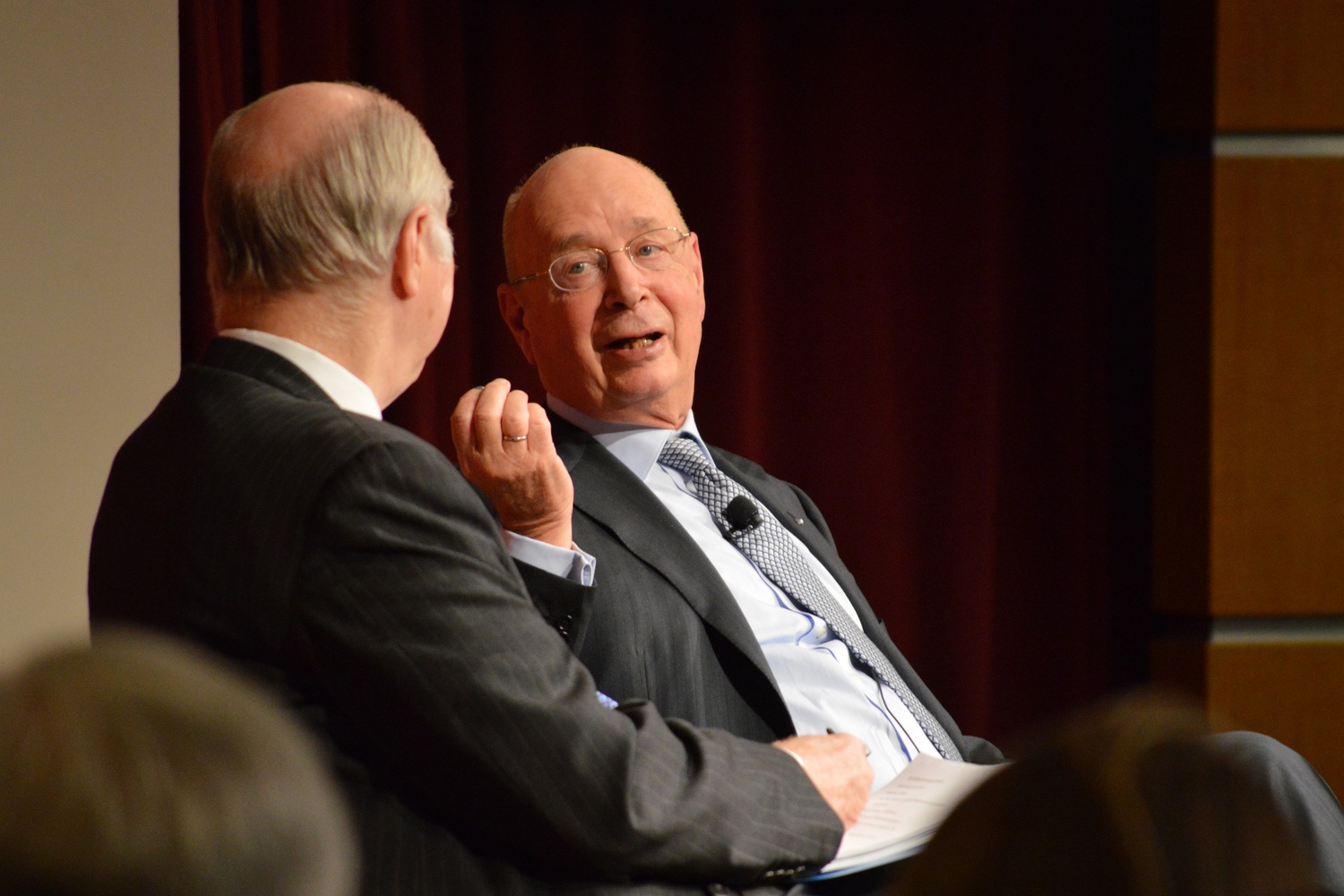
News
Summers Will Not Finish Semester of Teaching as Harvard Investigates Epstein Ties

News
Harvard College Students Report Favoring Divestment from Israel in HUA Survey

News
‘He Should Resign’: Harvard Undergrads Take Hard Line Against Summers Over Epstein Scandal

News
Harvard To Launch New Investigation Into Epstein’s Ties to Summers, Other University Affiliates

News
Harvard Students To Vote on Divestment From Israel in Inaugural HUA Election Survey
World Economic Forum Founder Discusses Global Economy at IOP

Klaus M. Schwab, founder and executive chairman of the World Economic Forum, shared his insights on the challenges faced by today’s global economy at the Institute of Politics Thursday evening.
The discussion, titled “Improving the State of the World”, was moderated by David R. Gergen, co-director of the Center for Public Leadership at the Kennedy School of Government.
Sharing his opinions on the world economy, Schwab emphasized the importance of innovation to a country’s economic competitiveness.
“Today we should talk about not developed and developing countries, but rather high-innovation and low-innovation countries,” Schwab said. “Traditional comparative advantages will play a lesser role. It is the ability to innovate that will determine a country’s economic success.”
For Schwab, innovation means not just “providing new goods and services,” but also equipping “people with the new necessary skills.”
When asked how to build a better capitalist world, Schwab said: “I argue that we’ve moved from capitalism to talentism: the most decisive factor of production today is human capital and talent. The key challenge we face today is how to make sure that everyone can become a talent and has the necessary skills.”
Another challenge that Schwab highlighted was the tension between national and global governance.
“The world today is becoming increasingly interconnected, but the governance system has become more and more disconnected,” Schwab said. “There is a tendency today where national interests prevail over global interests. We must have a global interest in mind for everything we’re doing.”
Much of Schwab’s work has centered on empowering and enabling young people.
Born in Germany and educated in Switzerland, Schwab spent a year at Harvard in 1967 and holds a Master’s Degree of Public Administration from the Kennedy School. By age 31, Schwab had acquired five degrees and founded the World Economic Forum, which describes itself as “the world’s foremost multi-stakeholder organization”.
Schwab called his education at the Kennedy School “a life changing experience” that made him decide to “devote my life to public service.”
Many audience members were part of the Forum of Young Global Leaders or the Global Shapers Community, two organizations founded by Schwab that focus on amplifying the impact of young leaders in shaping the world today.
Kate B. Aitken, a joint-degree candidate at the Business School and the Kennedy School, is a Global Shaper working to catalyze innovation in the civic sector in Boston.
“It’s thrilling to hear him talk about how optimistic he is about the role we play as a generation,” she said.
Deng Majok Chol, a South Sudanese student at the Kennedy School, echoed the sentiment.
“He talked about the the challenges of governance that we are facing today and how [international organizations] help young countries like South Sudan to attend to the tremendous challenges of nation-building,” Chol said. “That was something that I could relate with.”
Want to keep up with breaking news? Subscribe to our email newsletter.
